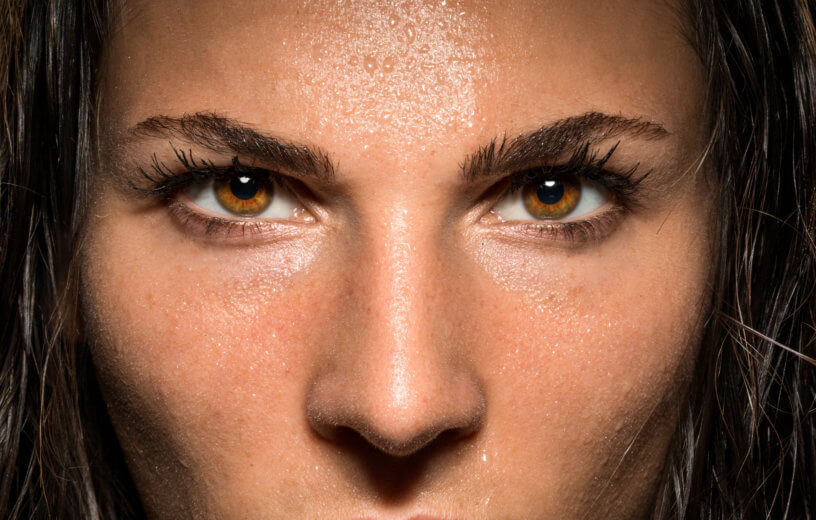KNOXVILLE, Tenn. — It’s a common sight across both professional and amateur sporting events. Athletes preparing for a pivotal play or moment in the game put on their most determined and intense “game face.” While most people consider these gritty stares as nothing more than a side effect of preparing for in-game play, is it possible that putting on a game face actually helps us perform better? A team of researchers from the University of Tennessee, Knoxville set out to answer that question, and their findings may surprise you.
“Game face may not only improve performance in cognitive tasks, but it could also lead to better recovery from stress,” explains lead author Matthew Richesin, a master’s student at UTenn, in a statement.
Richesin was inspired to investigate the phenomenon of game faces after noticing tons of Tennessee Football shirts around campus that proclaimed “Get Your Game Face On.” Surprisingly, after searching through prior research performed on the effect of facial manipulation on mood, he noticed that very little research had been regarding how our faces influence performance.
“There’s anecdotal evidence of game face having an impact based on its common use among athletes,” Richesin explains. “But we wanted to see if it would help on physical and mental challenges from a scientific perspective.”
So, Richesin and his fellow researchers opted to perform two experiments on the effect of game faces involving 62 participants. One focused on cognitive performance, while the other measured physical performance.
Both experiments included an experimental group, who were initially shown images of athletes and other public figures showing off their game face. Then, across both experiments, this experimental group was asked to display their own “look of intense determination” while performing both tasks. A control group also took part in both experiments, and these participants weren’t shown any images, nor were they instructed to do anything in particular with their faces.
The first experiment asked participants to submerge their hands in a container of ice water (39–42 degrees Fahrenheit) for up to five minutes. While putting on a game face didn’t seem to have any impact on physical performance in this experiment, the research team did note that even participants from the control group ended up displaying a determined, intense look on their faces after putting their hands in the water.
“Their reactions were spontaneous,” Richesin says. “The facial expressions were the same as those commonly associated with effort, pain, and competition.”
The second experiment asked participants to complete as much of a 100-piece black and white puzzle as possible in just five minutes. On average, the game face group performed 20% better than the control group in this experiment. Furthermore, those who put on a game face also exhibited improved stress recovery in comparison to the control group.
These findings are consistent with previous facial research that had found facial manipulation can positively influence one’s mood.
“If making a game face has the potential to improve performance, we may find this concept can have application outside of the traditional venue of sports,” Richesin concludes.
The study is published in the scientific journal Stress and Health.
